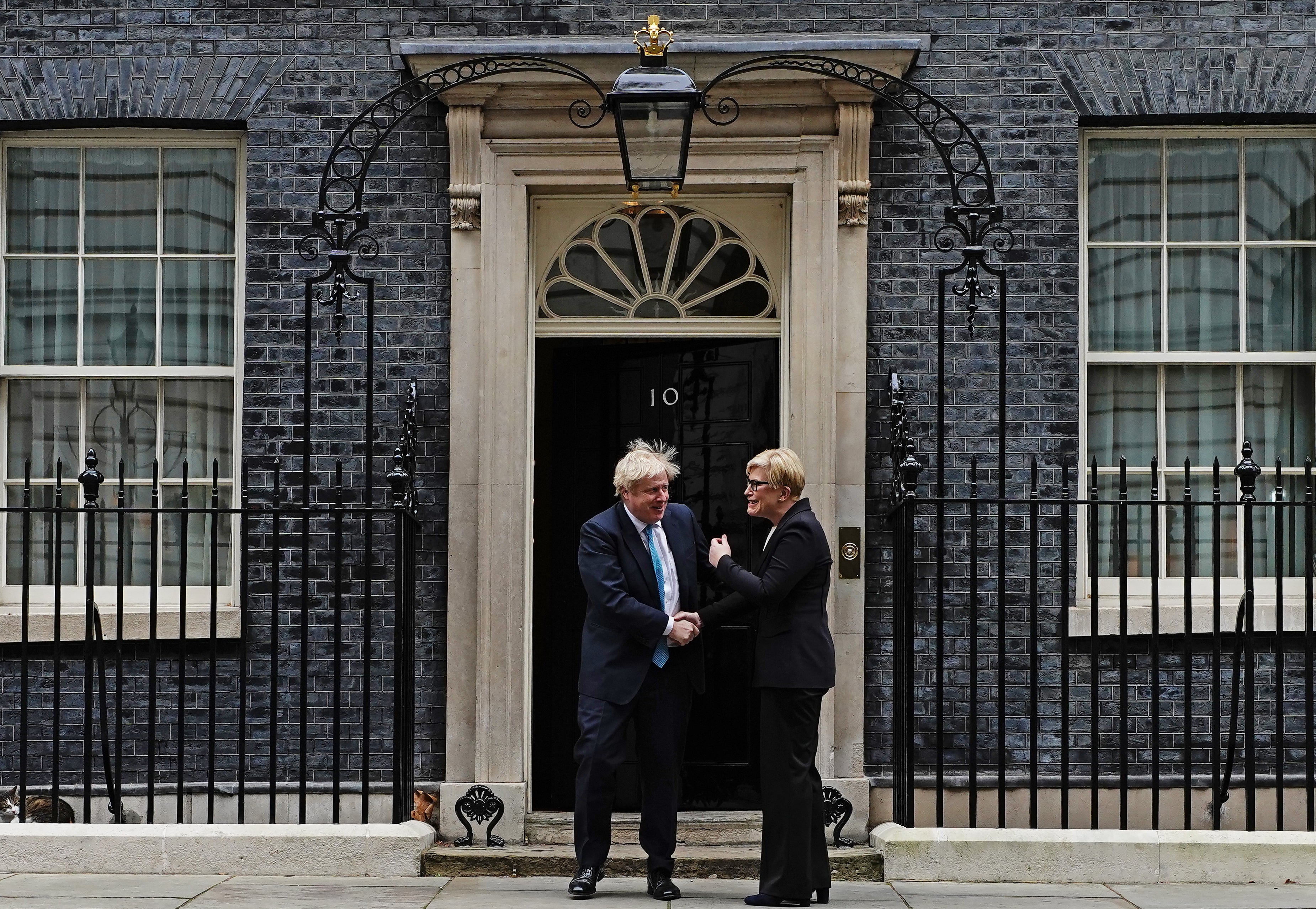Johnson voices UK support for Nato allies at meeting with Lithuanian PM
The Lithuanian leader says a close relationship with the UK is ‘crucial’ as ‘the times are, so to say, not the calmest’.

Your support helps us to tell the story
From reproductive rights to climate change to Big Tech, The Independent is on the ground when the story is developing. Whether it's investigating the financials of Elon Musk's pro-Trump PAC or producing our latest documentary, 'The A Word', which shines a light on the American women fighting for reproductive rights, we know how important it is to parse out the facts from the messaging.
At such a critical moment in US history, we need reporters on the ground. Your donation allows us to keep sending journalists to speak to both sides of the story.
The Independent is trusted by Americans across the entire political spectrum. And unlike many other quality news outlets, we choose not to lock Americans out of our reporting and analysis with paywalls. We believe quality journalism should be available to everyone, paid for by those who can afford it.
Your support makes all the difference.Boris Johnson has said the UK stands “shoulder to shoulder” with Lithuania and its other Nato allies amid rising tensions between Russia and Ukraine.
Mr Johnson made the comments at a meeting with Ingrida Simonyte, the Prime Minister of Lithuania, in Downing Street on Tuesday.
“We are closer than ever before, I think it’s fair to say. We see eye to eye on a lot of very important matters,” he said.
We're shoulder to shoulder with you and all our Nato allies
Ms Simonyte said this is “crucial” because “the times are, so to say, not the calmest”, to which Mr Johnson agreed: “They’re not calm.”
The Lithuanian PM added: “It’s very to good to know that, you know, we have a very strong partner and friend and at least that we are together, like Nato and others, and I think it’s extremely good what you are doing on Ukraine.”
Mr Johnson responded: “We’re shoulder to shoulder with you and all our Nato allies and we want to make clear that we support you… we support you when it comes to the immigration issues in Belarus and all the questions that we’re now facing.”
Belarus’ leader Alexander Lukashenko, an ally of Russian president Vladimir Putin, has been accused of stoking a migrant crisis on the EU’s eastern border, including in Lithuania and Poland.
It comes after Germany announced on Monday that another 350 of its soldiers would go to Lithuania to strengthen Nato’s eastern flank.
Meanwhile, UK Defence Secretary Ben Wallace said a further 350 British troops would be sent to Poland to send a strong signal that the two countries “stand side by side”.
Mr Johnson said later on Monday that he was considering dispatching RAF Typhoon fighters and Royal Navy warships to protect south-eastern Europe.
Writing in The Times, he said the UK “will not flinch now” and that Britain will remain “unconditional and immovable” in supporting the Nato defence alliance.
Diplomatic efforts to resolve the Ukraine crisis will continue this week, with Mr Wallace and Foreign Secretary Liz Truss expected to head to Moscow for talks.